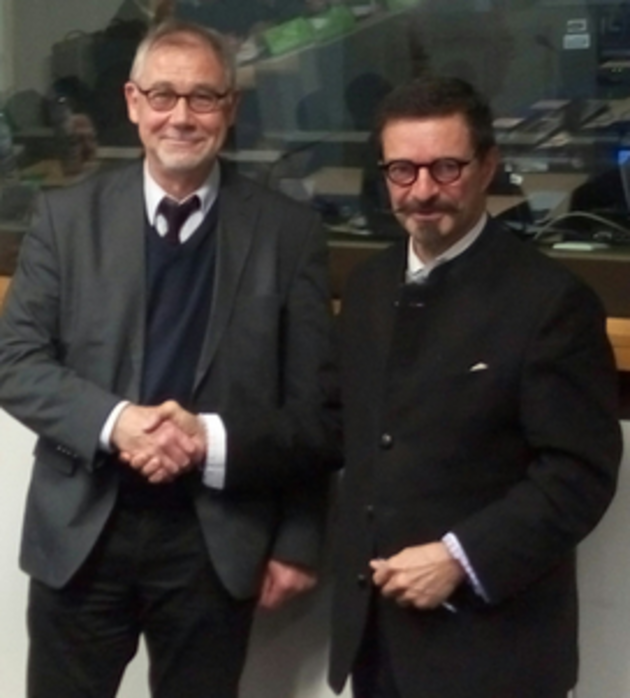
On the occasion of their Sectoral Social Dialogue Plenary session held on 4 December 2015, HOTREC and EFFAT issued a joint statement on the “sharing economy”, calling for a level playing field that ensures fair competition amongst all service providers in the tourism sector. As part of their 2016-2017 work programme, the social partners will continue to exchange views on the common concerns and challenges that sharing economy is posing on consumers, employees and businesses.
During their various social dialogue meetings in 2014 and 2015, EFFAT and HOTREC representatives have shown concern about the emergence and rapid spread of the so called “sharing economy” in the hospitality/tourism sector, which is often developing in an uncontrolled and unregulated way. For this reason, the EU official social partners in the hospitality sector decided to join forces and discuss how the “sharing economy” is impacting on businesses and employment in the tourism sector.
“Companies in the tourism sector, which are in its vast majority micro-sized enterprises, find themselves subject to heavy regulations in all countries, which guarantee the health, security and safety of consumers as well as the rights and obligations of employees working in any hospitality establishment”, said Christian de Barrin, CEO of HOTREC. “Compliance with heavy regulations raises, in many occasions, the price of the service provided but ensures on the other hand a safe working environment for employees and a secured, quality service for consumers”, added Jean-Marc Banquet d’Orx, Chair of HOTREC Sectoral Social Dialogue Committee.
“Established enterprises in the hospitality sector have to comply with labour regulations, including collective agreements and to ensure that any worker employed in the sector is entitled to all legal rights and obligations“, said Harald Wiedenhofer, EFFAT General Secretary. “We fear that the increased offer of accommodation services offered on a commercial basis through “sharing economy” platforms might result in a decrease of regular employment and an increase in the creation of informal jobs, thus extending precarious and undeclared work and unfair competition”, concluded Harald Wiedenhofer.
EFFAT and HOTREC call on public authorities to collect data about the impact of the sharing economy on businesses and employment in tourism and to ensure also that all service providers in the sector comply with the applicable legislation.
--------------------------------------------------------------------
|
EFFAT, the European Federation of Trade Unions in the Food, Agriculture and Tourism sectors, is representing 120 national trade unions from 35 European countries. EFFAT defends the interests of more than 22 million workers in its sectors towards the European Institutions, European employers’ associations and transnational companies. |
For further information: www.hotrec.eu - www.effat.org
Press contacts: Isabel Sobrino Maté +32(0)2 504 78 45, isabel.sobrino@hotrec.eu
Kerstin Howald +32 476 71 91 79, k.howald@effat.org
Press release - EFFAT-HOTREC_Joint statement on sharing economy
EFFAT-HOTREC_Joint statement on sharing economy_2015_12_04